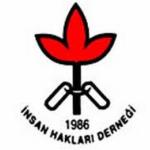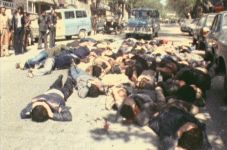Report on Human Rights Day:
Turkey's Human Rights Situation "Discouraging"

The Human Rights Association (IHD) and the Human Rights Foundation of Turkey (TIHV) released a report on the occasion of 10 December, Human Rights Day, saying: "Although 59 years have passed since the Universal Declaration of Human Rights, Turkey has not developed its constitutional and legal system as envisaged by the United Nations and the principles of the declaration."
Hüsnü Öndül, president of the IHD, and Yavuz Önen, president of the TIHV, established the following in their report:
Right to live: Turkey has not been successful enough in protecting the right to life. Although the death penalty was abolished in 2002, there are still deaths on the hands of security forces and deaths from torture.
Torture: Although Turkey’s legal system forbids torture, the frequent and systematic use of torture is still continuing in detention centres, prisons and informal detention centres. There has been no determined effort to put preventative measures into place, there are no effective investigations; in short, there is a policy of impunity. Turkey must ratify the Optional Protocol to the United Nations’ Convention against Torture.
Personal freedom and security: Changes in the Law on Police Duties and Authorities have left this right insecure and have allowed the police to act at their own discretion. Examples of this danger are the executions by the police in Istanbul and Izmir, the arbitrary ID controls the police has carried out in several cities, the body searches, arbitrary arrests and the judiciary decrees which allow these practices.
Freedom of expression: At least 14 articles in the Turkish Penal Code, Articles 6 and 7 in the Anti-Terrorism Law, and many clauses in laws that foresee punitive sanctions threaten the freedom of expression. Speaking out on any topic can be turned into a crime.
Fair trials: Generally, the judiciary does not decree according to the case law of the European Court of Human Rights. There are no effective investigations in trial processes. The state’s interests and understanding of security can be more important than human rights.
Kurdish issue: The constraints in learning one’s mother tongue, the restrictions on education and the mandatory use of Turkish for political parties continue. There is not enough process in the issue of displaced persons. The neglect of economic and social rights in the Southeast continues.
Prisons: Isolation in cells continues and the mandate to ease conditions is not being applied. There are still complaints about torture. There is no monitoring by civilian bodies.
Demonstrations and marches: The police intervene in peaceful demonstrations and uses excessive force; however, when there are racist or nationalist attacks, this is evaluated as “the right to demonstrate” and the perpetrators are not brought to justice.
Laicism, freedom of religion: The existence of the Department of Religious Affairs, obligatory Religious Education classes at school, and clothing rules are still problems. There are still attacks on non-Muslims. Cem houses, the places of worship for Alevis, are denoted as “culture centres”.
Protection of human rights activists: Court cases against IHD leaders and members continue. The president of the Adana branch was given a prison sentence, while a court case demanding the closure of the Mersin branch started on Human Rights Day. The Chief Prosecutor of the Supreme Council of Appeals, when opening a case to close the pro-Kurdish Democratic Society Party (DTP), judged the IHD as well. (TK/AG)










